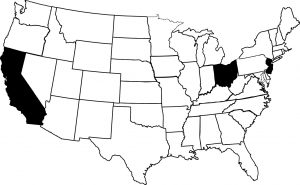American Motorcyclist September 2018
Statewatch
 California
California
S.B. 1316 passed the state Senate and was been referred to the Assembly Appropriations Committee for consideration. This bill attempts to deny the off-highway vehicle community a long- overdue opportunity for increased motorized recreational opportunities at the Carnegie State Vehicular Recreation Area’s Alameda-Tesla Expansion Area. The property was bought with funds from the Off Highway Vehicle Trust Fund more than 20 years ago. Opposition to the bill comes primarily from local land owners, many of whom previously agreed to the acquisition. The AMA is asking its members and all other OHV recreationists to contact elected officials and remind them of the agreement that was made when the properties were acquired. It is also important to remind them that the program uses no general fund monies and is based on a user-pay, user-benefit model. Money used to pay for the program include taxes collected on fuel, SVRA entrance fees and vehicle registrations. Visit the California section under the State Action Center at www.americanmotorcyclist.com > Rights > AMA Action Center to make your voice heard.
New Jersey
State Sen. Jeff Van Drew (D-Atlantic City) has introduced S. 1400, which would allow the operator of a motorcycle, motorized bicycle or bicycle to proceed through an intersection on a malfunctioning steady red light if the operator comes to a full and complete stop at the intersection for two complete cycles or for two minutes, whichever is shorter. The rider would then treat the signal as a stop sign. Assemblymen Bob Andrzejczak (D-Cape May) and Bruce Land (D-Cumberland) introduced an Assembly version of the bill (A. 3204).
Ohio
The state Senate passed legislation aimed at decreasing distracted driving by imposing up to a $100 fine on offenders in addition to the standard fine established for the moving violation they are cited for. H.B. 95, sponsored by state Reps. Jim Hughes (R-Upper Arlington) and Bill Seitz (R-Cincinnati), makes distracted driving a secondary offense. Drivers must be pulled over first for a moving violation before they can be cited for the offense. Under the bill, distractions include, but are not limited to, texting, reading, using tablet or smart phone features or applying cosmetics. In lieu of paying the additional fine, offenders may choose to complete a distracted driving safety course.
